The views expressed in our content reflect individual perspectives and do not represent the authoritative views of the Baha'i Faith.
Most black people know how traumatic being a victim of racism can be. But what do you do when it’s your family, friends, or loved ones who are wounding you? People of color who have immediate family members and friends who are white have to learn how to communicate with their loved ones so that they can be heard. Many people with both black and white ancestry are using their unique experiences to work towards race unity and improve race relations.
The process of healing from racism-based trauma inflicted by family and friends can be long, difficult, and painful. But when your loved ones are also your oppressors, you’ve seen them at their highest and lowest points, and you know they can do better.
Baha’is also believe we have a spiritual responsibility to work this out. Indeed, Shoghi Effendi, one of the central figures of the Baha’i Faith, said that freedom from racial prejudice should be deliberately cultivated in every aspect of our lives. In a letter written in 1938, he wrote:
“Freedom from racial prejudice, in any of its forms, should, at such a time as this when an increasingly large section of the human race is falling a victim to its devastating ferocity, be adopted as the watchword of the entire body of the American believers, in whichever state they reside, in whatever circles they move, whatever their age, traditions, tastes, and habits. It should be consistently demonstrated in every phase of their activity and life, whether in the Bahá’í community or outside it, in public or in private, formally as well as informally, individually as well as in their official capacity as organized groups, committees and Assemblies.”
Facing Racism in the Family
We can’t address racism until we acknowledge it and face it head-on. As Angela Caldwell, a certified addictions counselor says, “You’re as sick as your secrets.”
“Racism exists even in the most loving, multiracial family,” says 50-year-old Los Angeles resident Jamey Heath. His father is black and his mother is white. Jamey grew up in predominantly white neighborhoods, went to majority-white schools, and wasn’t raised around any of his black extended family members. A crucial lesson that his upbringing taught him is that you can’t hide from racism.
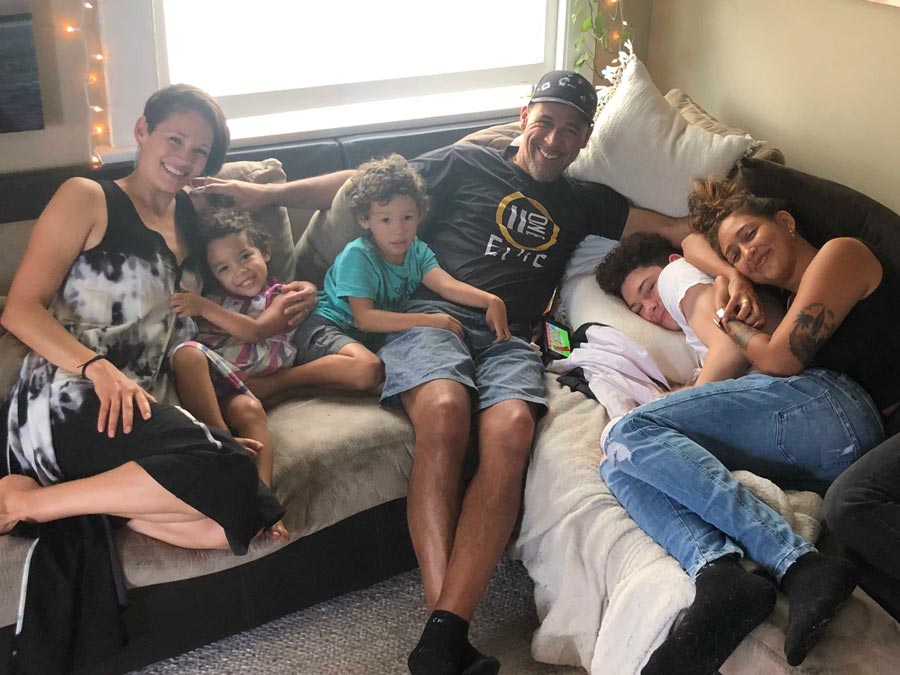
Even “with the most well-intentioned, wonderful people that have a high moral conduct and spiritual capacity, there’s this smog [of racism] going throughout the whole house and the family, and we’re breathing it and it’s killing us, and we’re not even aware of it until later and you got the cancer,” says Jamey.
The National Spiritual Assembly of the Baha’is of the United States wrote in 2017 about how pervasive this spiritual illness is:
“The nation is afflicted with a deep spiritual disorder, manifest in rampant materialism, widespread moral decay, and a deeply ingrained racial prejudice. As a result, millions of our fellow Americans, subject to systemic injustices in many facets of life, are prevented from making their full contributions to society and of partaking fully in its benefits. No one is immune to this disorder―we are all members of this society and to some degree suffer the effects of its maladies.”
Jamey says that he was “called the ‘n-word’ all the time” and “was constantly berated for being brown and darker and joked about not only within my family, but outside the family even more so in school, in life, in my neighborhood, so that made it hard to feel like I fit in.”
Kayla Taylor, a 21-year-old from Chicago who is black, white, Colombian, and Honduran, says she witnessed racism against her father, who is black and white, from a member of her extended family. “I feel like there’s this older generation of Latinx people where it’s common to be racist,” Kayla says. “My great-grandmother used to say, ‘People with light hair [and light blue eyes] were closer to God.’”
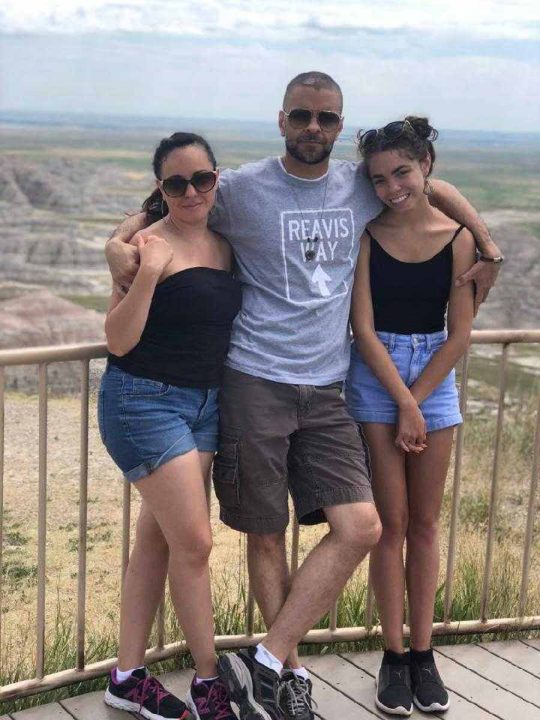
Although Kayla laughed about this over the phone with me, she admits that her great-grandmother never fully accepted her. She recalls a conversation that her cousins had with her great-grandmother before they all went to her 15th birthday party. “My cousins had to warn my great-grandmother,” says Kayla. “They were like, ‘they’re going to be black people at the party, and they are her family.’ And she had said, ‘No, they’re not. They’re not her family.’” She was, says Kayla “kind of denying that there is this side of me that she wanted to hide.”
The Importance of Talking About Race
“There are good intentions, but lack of understanding due to lack of exposure,” says Joshua Rysiew, an 18-year-old from Georgia who is black, Persian, and Canadian. Joshua says he believes it’s important for white people to have diverse friendships and talk about these issues. Like Jamey, he’s attended predominantly white schools and has been the victim of jokes about people of Middle Eastern descent and has been racially profiled.
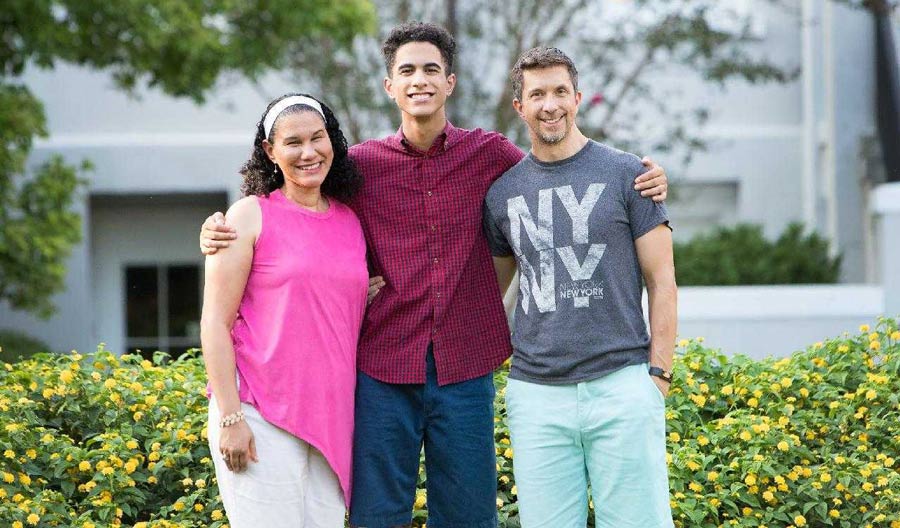
While he was waiting in his car to teach a children’s class in a predominantly white neighborhood, someone called the police and said that he was stealing mail from mailboxes. He says that it was a surreal experience. “With ignorance, comes mistakes,” he says, noting that now he’s focusing on having conversations about racism with any friends that will listen.
Jamey is also having those conversations. “I have friends that are white whose lenses are still blurry, but I’m also able to see their goodness and see that they’re decent in nature, where maybe I wouldn’t feel that had I not been raised in a mixed family, had I not been raised around white people,” he says. “Seeing some of their low nature, but also seeing some of their high nature allows me to deal with it differently.”
Ananda Ewing-Boyd, a 21-year-old Washington, D.C. native who has two black grandfathers and two white grandmothers, said that her socially conscious grandmothers remind her of the humanity of white people. But their example also calls her to hold white people to a higher standard because race unity guides every decision that her family makes.
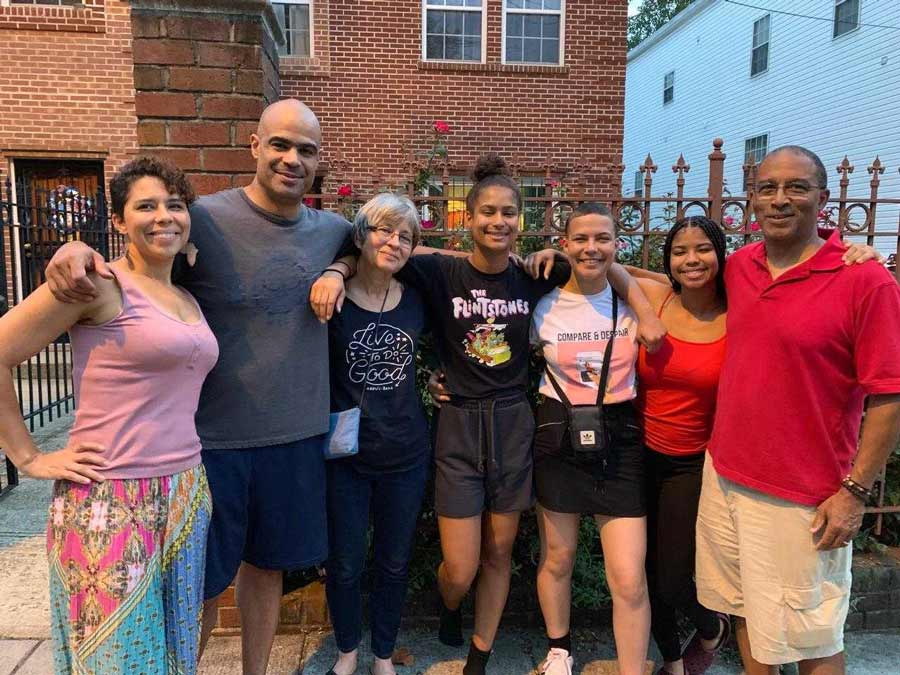
And, Shoghi Effendi stressed how urgent it is to solve racial prejudice in this country:
“The ceaseless exertions which this issue of paramount importance calls for, the sacrifices it must impose, the care and vigilance it demands, the moral courage and fortitude it requires, the tact and sympathy it necessitates, invest this problem, which the American believers are still far from having satisfactorily resolved, with an urgency and importance that cannot be overestimated.”
Jamey says that because the racism he experienced was not addressed and reprimanded, he internalized it. When he was young, he wondered if he was the problem. “I was very proud to say that my mom was white — as if that would make me more pleasing,” Jamey says. He shared that it wasn’t until he was 25 that he realized that he didn’t “need to do that in order to be seen.”
“If no one around you sits you down and asks you questions about that, then you never identify it,” Jamey says. “So you just live with this illness until you get old enough to look back and [say], ‘Oh, this is what I had.’ “
Kayla says she was able to develop a positive identity because race was always a part of her immediate family’s conversations. “I went to a Montessori school in Hyde Park in Chicago on the South Side, so they were always really open with asking and talking about race at a young age at my school. They taught us history well,” she says.
“Realizing the historical context [and] the realities of our history in our country,” Kayla says, “definitely helped with talking about race and how I identified.” Her parents kept her in diverse areas and schools, so she would not have to feel like a minority and not see herself reflected in others.
What Gives Them Hope
All of these people work towards race unity in their own way. Kayla hosts virtual gatherings about racism. Jamey and Joshua continuously engage in conversations with their white friends and loved ones to help them understand how prevalent racial prejudice is. Ananda focuses on fighting internalized racism and empowering black children to see their nobility.
“We [black people] have been running with weights on,” Ananda says. It inspires her to wonder, “What could we do if we were free?”
Joshua says that although this is an incredibly turbulent time, seeing the heightened awareness of systemic racism and oppression really gives him hope for the future.
As Kayla says, “You can really feel the spiritual shift.”





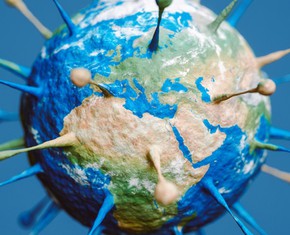
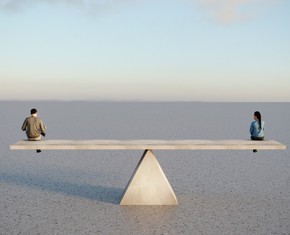









Comments
Sign in or create an account
Continue with Googleor